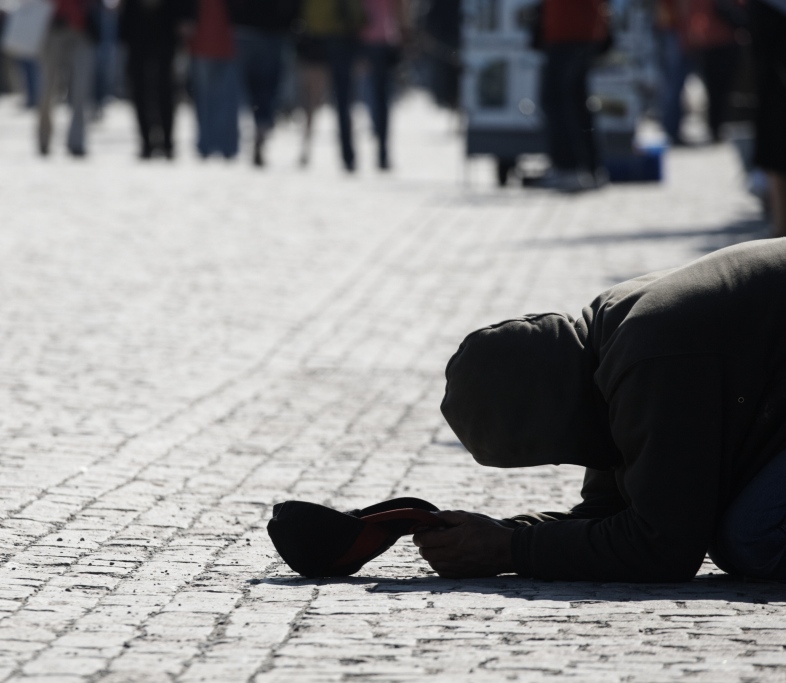The Bahá’í teachings offer a profound perspective on the socioeconomic responsibilities of individuals, particularly those who possess considerable wealth. Such teachings underscore the interconnectedness of humanity and the imperative for equitable distribution of resources. Wealth, within the Bahá’í framework, is not merely a product of individual endeavor but is seen as a trust from the Divine, intended to foster the welfare of all. This essay seeks to elucidate the Bahá’í view on the responsibility of the affluent, examining various dimensions that collectively reflect a higher moral obligation towards society.
At the foundational level, the Bahá’í writings articulate that material possessions should not engender a sense of superiority among the wealthy. On the contrary, they are viewed as a means to contribute to the upliftment of others. The act of accumulating wealth, devoid of a conscience towards communal responsibility, is inherently problematic. Bahá’í teachings synthesize the notion of personal advancement with the well-being of the broader community, positing that true success is measured by the collective progress rather than individual gain.
Moreover, the wealth of an individual is described as a reflection of their potential to foster social transformation. The affluent possess the unique capability to initiate change through philanthropic endeavors, investment in social projects, and support for education and healthcare initiatives. Such activism aids in addressing systemic inequalities and uplifting marginalized populations. The Bahá’í perspective encourages individuals with resources to utilize their assets not simply for personal comfort but as instruments of social justice.
Equally important is the notion of stewardship embedded within the Bahá’í teachings. Wealth is not portrayed merely as a commodity to be hoarded, but rather as an opportunity for stewardship. The affluent are reminded that they hold a custodial role over their resources. This perspective invokes an ethical obligation to ensure that their wealth benefits not just themselves, but society at large. The idea is that true owners of wealth are those who use it justly, creating avenues for others to thrive and enabling communal flourishing.
The concept of justice is central to the Bahá’í view of wealth distribution. Justice, in this context, demands that those who are fortunate enough to possess wealth recognize their obligation towards societal equity. This pursuit of justice transcends mere charity; it encompasses a commitment to rectifying inequities and working towards a system where all have access to basic necessities. The call for justice manifests in the wealthy taking action to dismantle barriers that perpetuate poverty and disenfranchisement.
However, addressing the responsibility of the wealthy within the Bahá’í framework goes beyond altruism. It hinges on the recognition of a shared human destiny that calls for collective action. Bahá’ís emphasize the importance of unity and cooperation among different sectors of society in overcoming the challenges of poverty and inequality. This reliance on collaborative approaches reflects a deep understanding of our interconnectedness—a belief that the fate of one is intrinsically linked to the fate of all.
There is also a spiritual dimension to the Bahá’í conception of wealth and responsibility. The affluent are urged to engage in a reflective practice, assessing the ethical implications of their financial decisions. This introspection can lead to a more profound understanding of the transient nature of material wealth. By viewing their possessions through a spiritual lens, wealthy individuals can cultivate gratitude for their blessings and a desire to share them with others. Such a mindset fosters a culture of generosity and service, inherent to the Bahá’í ethos.
In the context of modern society, the teachings emphasize the need for systemic changes that address economic disparities. Bahá’í narratives advocate for the incorporation of moral and ethical standards in business practices, promoting fair trade and sustainable development. The responsibility of the wealthy, then, is not just in their individual acts of charity, but also in their ability to influence broader social policies and structures. This interconnected approach aligns with the Bahá’í commitment to fostering a just and equitable world.
Furthermore, the Bahá’í teachings advocate that a commitment to education is indispensable for the enrichment of society. Wealthy individuals are encouraged to invest in educational initiatives that empower underprivileged communities. Such investments do not simply address immediate material needs but also equip individuals with the tools necessary for self-sufficiency and personal growth. Education is posited as a vital component in achieving social equality and unlocking the latent potential within all members of society.
The rich tapestry of Bahá’í thought regarding the responsibility of the wealthy culminates in a vision of social transformation characterized by unity, justice, and service. The affluent are called upon to transcend conventional notions of wealth and consider their unique position as a platform for effecting positive change. By embracing the philosophy of stewardship, justice, education, and collaboration, wealth can be transformed from a symbol of distinction into a conduit for societal elevation.
In conclusion, Bahá’í teachings offer a compelling framework for understanding the responsibilities of the wealthy. By fostering a holistic view that intertwines material and spiritual considerations, this perspective not only addresses the ethical obligations of affluence but also envisions a more inclusive and equitable global community. It is in the recognition of our interconnectedness that we find the true essence of wealth—a shared responsibility towards each other and the world we inhabit.
